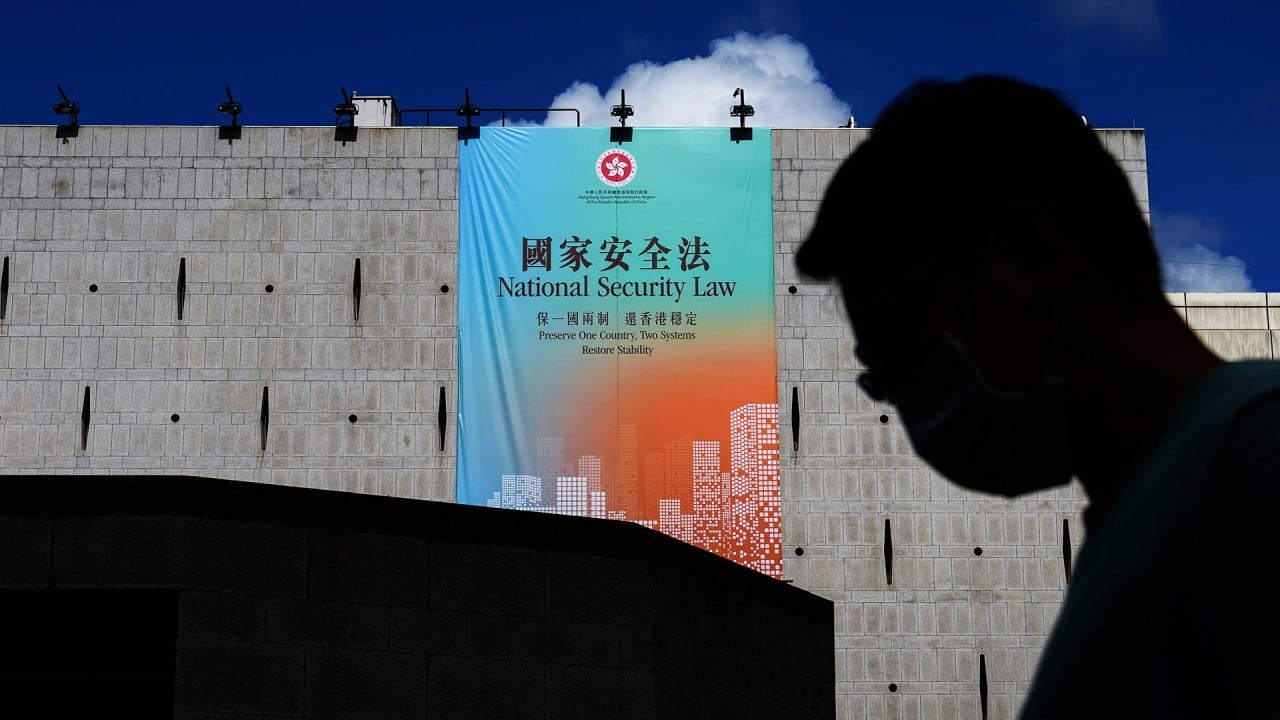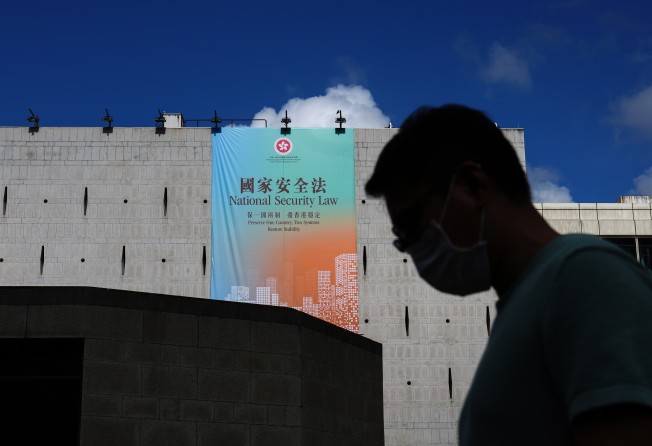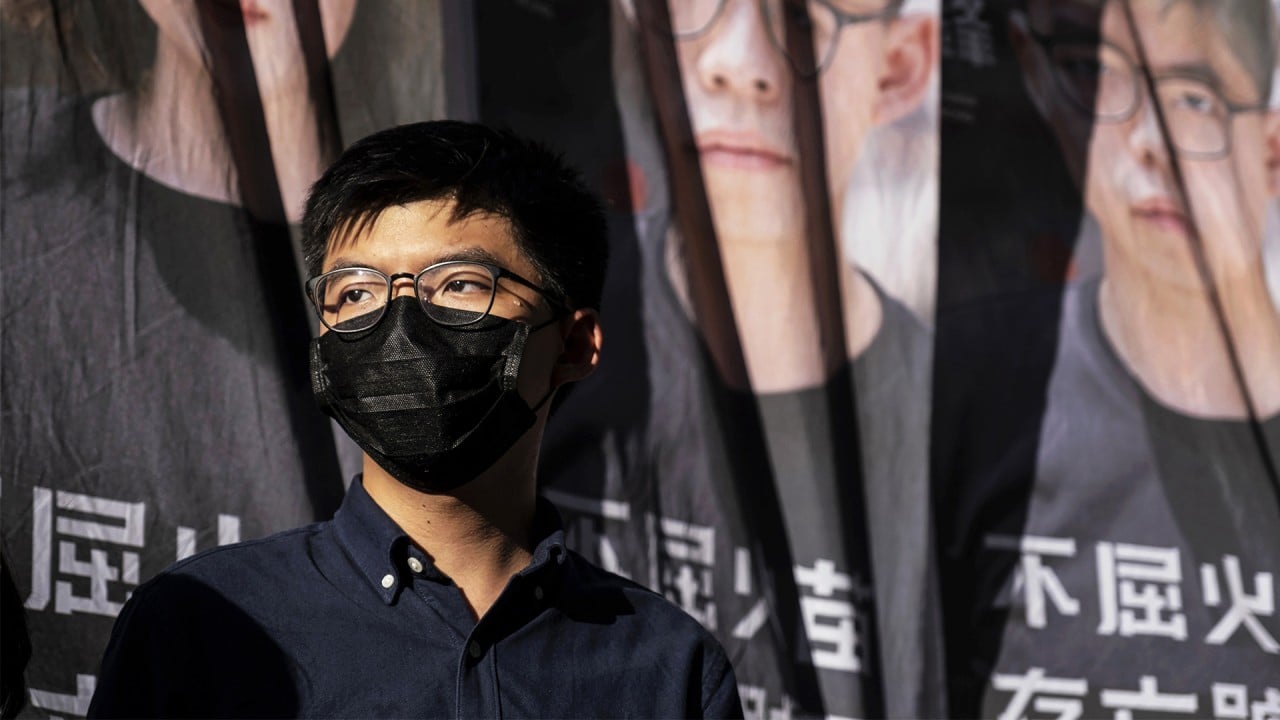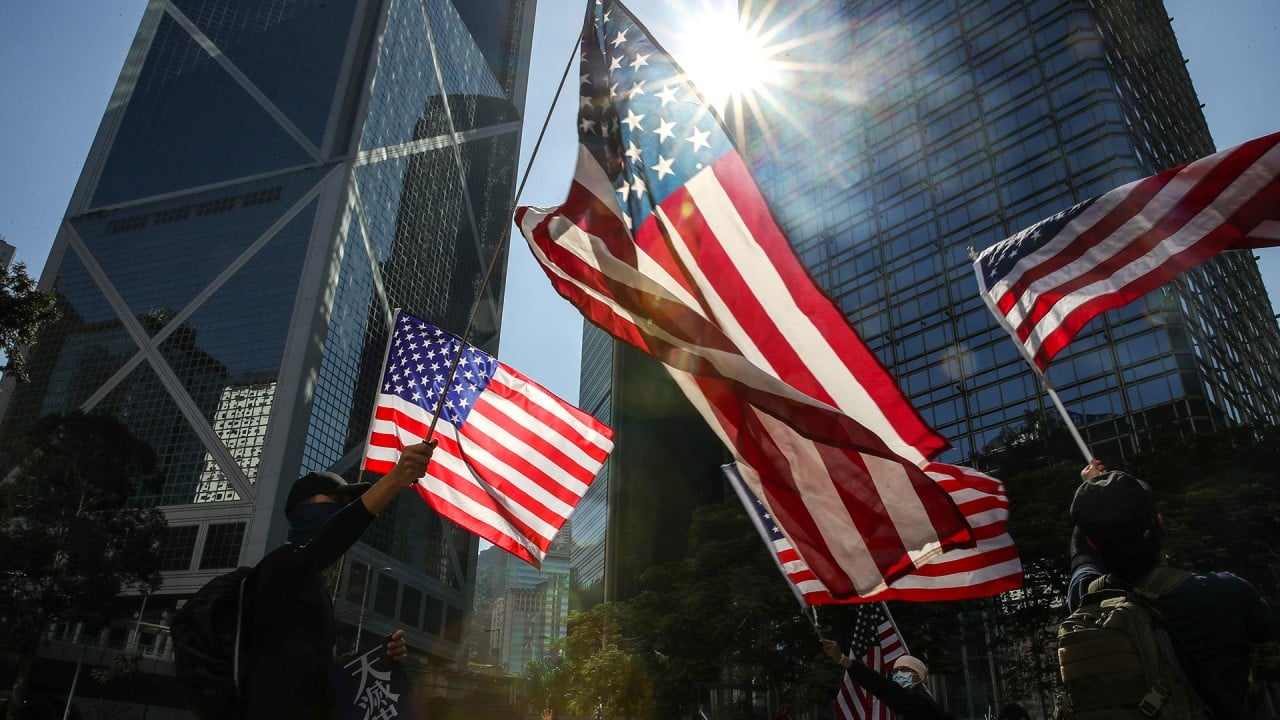
02:13
Beijing’s passage of national security law for Hong Kong draws international criticism

The United States has condemned Beijing for enacting a national security law in Hong Kong that it says has destroyed the city’s autonomy, vowing it will not stand idly by over the new law.
US Secretary of State Mike Pompeo lamented the passing of the controversial legislation by the top body of China’s national legislature on Tuesday – which could lead to life imprisonment for serious offenders – as a “sad day for Hong Kong and for freedom-loving people across China”.
The law, effective from 11pm on Tuesday in the city, criminalised secession, subversion, terrorism and collusion with foreign forces to jeopardise China’s national security.
“The Chinese Communist Party’s [CCP’s] decision to impose draconian national security legislation on Hong Kong destroys the territory’s autonomy and one of China’s greatest achievements,” Pompeo said in the statement, published late on Tuesday in the US.

02:13
Beijing’s passage of national security law for Hong Kong draws international criticism
“The United States will not stand idly by while China swallows Hong Kong into its authoritarian maw.”
Together with countries including Britain and Australia, Washington has been vocal in condemning the national security law for undermining Hong Kong’s freedoms and semi-autonomy from Beijing under the “one country, two systems” model by which the former British colony has been governed since its 1997 handover to Chinese rule.
Beijing has rebuffed criticism abroad as “foreign interference”, and defended the new law as a “sharp sword hanging over a minority of people” threatening national security after more than a year of anti-government protests in the city.
Twenty-seven countries, including Britain, Australia, New Zealand, Sweden and Switzerland, issued a joint statement on Tuesday urging Beijing to reconsider the law.
Hong Kong security law full text
Hong Kong national security... by scmp on Scribd
The Japanese and South Korean governments also expressed concerns, and Taiwanese President Tsai Ing-wen described the law as evidence that the “one country, two systems” model had failed in Hong Kong.
Pompeo added in his statement that Washington had imposed visa restrictions on current and former Communist Party officials deemed responsible for undermining Hong Kong’s autonomy, ended defence and dual-use technology exports to the city, and would eliminate most policies that offered Hong Kong special treatment compared with mainland China.
Beijing has said it would take countermeasures to these actions, including enacting visa restrictions on Americans with “egregious conduct” on Hong Kong issues, as tensions have heightened between the two countries.
“The United States will continue to stand with the freedom-loving people of Hong Kong and response to Beijing’s attacks on freedoms of speech, the press and assembly, as well as the rule of law, all of which have, until now, allowed the territory to flourish,” Pompeo said.

03:03
Activist Joshua Wong expects to be ‘prime target’ of national security law in Hong Kong
The US’ top diplomat said Beijing’s actions in Hong Kong also revealed a failure to live up to its commitments in the 1984 Sino-British Joint Declaration, the agreement promising 50 years of semi-autonomy for the city after the former British colony’s handover to Beijing’s rule in 1997.
“The CCP promised 50 years of freedom to the Hong Kong people, and gave them only 23,” he said, referencing Wednesday’s 23rd anniversary of the handover.
“Within the past few years, Beijing has also violated its agreements with the World Health Organisation, the World Trade Organisation and the United Nations. This is a pattern the world cannot ignore.”
Details of the national security legislation, revealed late on Tuesday after it had been passed by mainland China’s top legislative body, showed Beijing would establish a mainland security office for the first time, set up a dedicated police unit to investigate national security cases, and allow mainland jurisdiction over certain “complicated” cases such as those relating to foreign interference.

06:21
Hong Kong and the US: how much do they rely on each other economically?
The law would apply to people both in and out of Hong Kong, sparking concerns that even foreigners outside the region could be prosecuted upon entering the city.
Nancy Pelosi, speaker of the US House of Representatives, also issued a strong statement on Tuesday describing the new law as intended to “frighten, intimidate and suppress the speech of Hongkongers”.
“All freedom-loving people must come together to condemn this law, which signals the death of the one country, two systems principle,” she said.
US lawmakers announced a bipartisan bill in response to the national security law that offered refugee status to Hong Kong residents at risk of persecution, including protesters charged for taking part in protests and journalists who suffered harm while covering them.
The US Senate passed a bill last week to sanction Chinese officials found to have eroded Hong Kong’s autonomy.